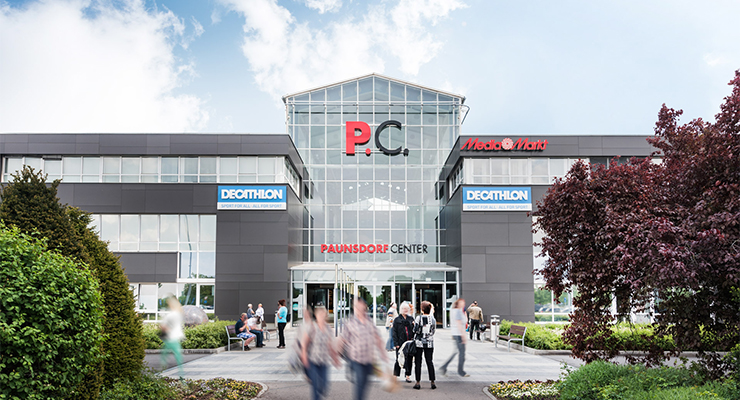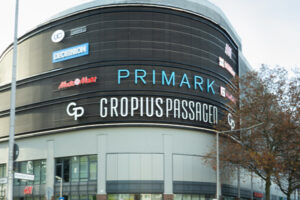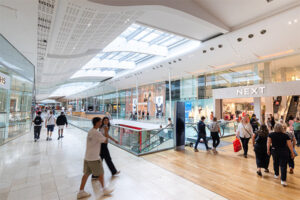The state-of-the-art system is an important milestone on the way to the company’s long-term goal: to reduce carbon emissions along the entire value chain by 50 percent by 2030 compared to 2015. With almost 2,700 solar modules, it covers an area of about 10,000 sq m and generates an annual electricity yield of about 1.1 million kWh, which corresponds to the electricity consumption of about 366 single-family homes.
The targeted own consumption from the system, 845,000 kWh, is to cover 30% of the total electricity consumption of the public areas of the center.
“Energy efficiency and sustainability are also location-promoting maxims for shopping centers such as Paunsdorf Center. The self-supply with renewable energies, the promotion of electric mobility as well as the long-standing partnership with local green energy suppliers such as Leipziger Stadtwerke are unique selling points that contribute to the attractiveness of the shopping mall. The management of Paunsdorf Center aims to supply the center with a secure and sustainable supply of energy – Leipziger Stadtwerke supports Paunsdorf Center in this”, comments Stephan Klan of Stadtwerke Leipzig.
“The photovoltaic system on the roof of the center will not only make a major contribution to environmental protection, but will also have a positive impact on energy purchasing”, adds Rainer Borst, Centre Manager. “We already buy 100 percent green electricity, and with the installation of the system, we are now additionally focusing on self-supply with renewable energies. The PV system is thus an impressive symbol of the ecological responsibility we take on locally, while also offering direct economic benefits. We are looking forward to the completion of the system and to the comprehensive partnership with Stadtwerke Leipzig.”
“Better Places”: Sustainability strategically anchored
Unibail-Rodamco-Westfield (URW), operator and owner of Paunsdorf Center, has committed to a sustainability strategy to address the biggest challenges facing the real estate industry. Better Places 2030 aims at transforming and future-proofing the portfolio, giving purpose to the teams, drive to the retailers, experience to the visitors and shared value for the communities. The strategy is in line with the company’s vision of “Creating sustainable places that reinvent being together” and includes the three pillars of “Better Spaces”, “Better Communities” and “Better Together”.
The first pillar includes aspects of ecological sustainability such as resource-saving construction and operation of real estate, measures on the way to low-emission economy or the promotion of modern mobility. With a total of ten e-charging points, which are operated in cooperation with Leipziger Stadtwerke in the parking area, and four of its own charging points in the car parks – more are already being planned – Paunsdorf Center is also positioning itself as a pioneer in the field of e-mobility.
The second pillar focuses on the company’s assumption of social responsibility and, in particular, the promotion of local communities at the various locations. The third pillar, in turn, contains guidelines on how URW’s teams and also its business partners can get involved in the pursuit of sustainability. The entire commitment within the framework of “Better Places” is regularly reviewed on the basis of defined indicators and progress reports.







